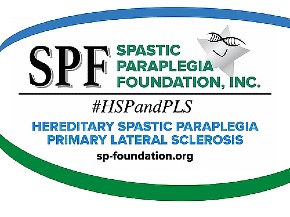Ending the latest chapter in a years-long legal battle over who invented CRISPR, the U.S. Patent and Trademark Office ruled on Monday that the revolutionary genome editing technology belongs to the Broad Institute of Harvard and MIT.
The decision is a huge blow to the University of California and biotech companies that had licensed the technology from the university for use in developing treatments, including Intellia Therapeutics and CRISPR Therapeutics. They will now have to negotiate with the Broad Institute for the right to use CRISPR for human therapies.
“This is pretty bad news for anyone who has a license for Berkeley’s technology,” said Jacob Sherkow, a patent attorney and professor at the University of Illinois College of Law who has closely followed the fight. “They have over 100 patent claims that just got wiped off the face of the earth.”
In 2020, Jennifer Doudna of the University of California, Berkeley, and Emmanuelle Charpentier of the Max Planck Institute for Infection Biology were awarded the Nobel Prize in Chemistry for first describing how CRISPR could be used to edit DNA, which they showed in a paper published in Science on June 28, 2012.
But that paper was focused on gene-editing in a test tube. The issue in this case was determining which team was first to get CRISPR to work in eukaryotic cells — a crucial step to translating the technology into treatments for human disease. A Broad group led by Feng Zhang reported in a Jan. 3, 2013, paper in Science that it had successfully CRISPR’d both mouse and human cells.
The University of California was joined in bringing the latest case by the University of Vienna and Charpentier — called the CVC group in legal filings.
CRISPR is made up of two components — an enzyme that cuts DNA and a guide RNA that acts like a GPS system, telling that enzyme where to go. In oral arguments before the Patent Trial and Appeal Board earlier this month, CVC attorney Eldora Ellison contended that the guide RNA Doudna and Charpentier described in their 2012 paper was essential for getting CRISPR to work in eukaryotic cells. And that the Broad team, led by Zhang, only succeeded after seeing the Berkeley team’s work.
“The law is clear,” Ellison said at the virtual hearing. “You cannot take someone else’s idea, try to throw a patent on it, then spend 10 years claiming you’re the inventor.”
NEWSLETTERS
Sign up for The Readout
Your daily guide to what’s happening in biotech.
Privacy Policy
But the Patent Trial and Appeal Board decided that CVC failed to provide convincing evidence that Doudna and Charpentier’s teams beat Zhang’s to the finish line. “Thus, we determine CVC’s currently involved claims are unpatentable,” they wrote in an 84-page decision.
“Today’s USPTO ruling is surprising and contrary to what more that 30 countries and the Nobel Prize Committee have decided regarding the invention of CRISPR-Cas9 genome engineering technology for use in all cell types, including human cells,” Doudna told STAT via email. “This latest decision will be appealed.”
Zhang was not immediately available for comment. A statement from the Broad Institute emphasized that the latest decision “once again confirmed Broad’s patents were properly issued.”





